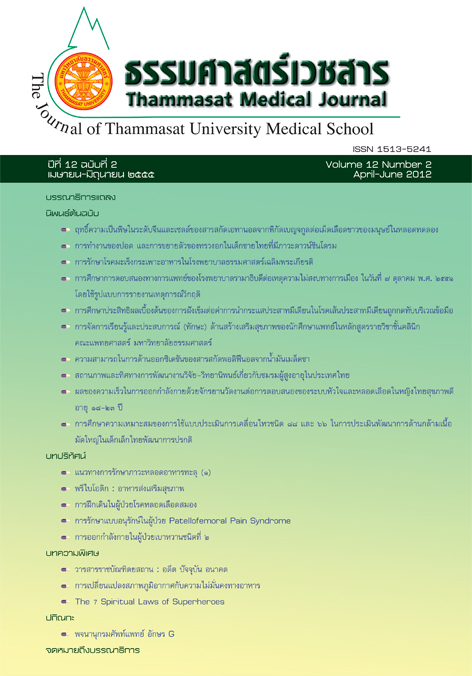In vitro Cytotoxic and Genotoxic Effects of Ethanolic Extract of Pikutbenjakul on Human Lymphocytes
Keywords:
Pikutbenjakul, Sister chromatid exchange, Doxorubicin, Genotoxicity, CytotoxicityAbstract
Pikutbenjakul (PBE) is an adaptogen widely used among patients with cancer. This study aimed to assess in vitrogeno toxic and cytotoxic effects of ethanolic extract of PBE on human lymphocytes using sister chromatid exchange (SCE) assay. PBE was prepared by macerating its herbal constituents with 95% ethanol for three days, fi ltered and dried. PBE (dissolved in DMSO) at 50, 100, 200, 400, and 500 μg/ml was used to treat human lymphocytes for three hours. SCE was then scored and analyzed. Plain RPMI and 0.4% (V/V) DMSO were used as the negative controls whereas doxorubicin (0.1 μg/ml) was used as the positive control. Results indicated that PBE ≥ 500 μg/ml was cytotoxic as very few mitotic cells were found. PBE at 100, 200 and 400 μg/ml could signifi cantly increase SCE level (p<0.05). Their mitotic index (MI) and proliferation index (PI) were not signifi cantly different from those of the controls. Results clearly showed that PBE was genotoxic and cytotoxic against human lymphocytes at concentrations of ≥ 100 μg/ml and ≥ 500 μg/ml respectively. These toxic effects are possibly due to plumbagin, one of the major compounds in PBE. The usage of PBE was safe at the concentration of ≤ 50 μg/ml. However, the additional in vivo studies are needed to clarify the proper dosage for the safety of use in cancer patients.
Key words: Pikutbenjakul, Sister chromatid exchange, Doxorubicin, Genotoxicity, Cytotoxicity



